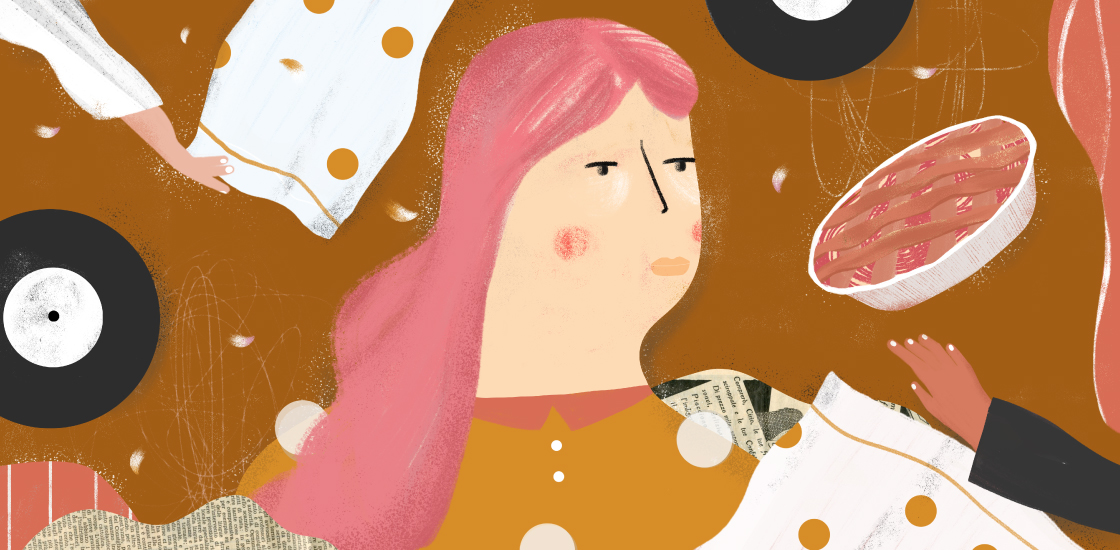Journalist Sarah Kurchak begins her memoir, “I Overcame My Autism and All I Got Was This Lousy Anxiety Disorder,” with a disclaimer: “I do not speak for all autistic people. I will not try to. I do not want to.” With that out of the way, what follows is a superb ‘autiebiography’ — an autobiography written by an autistic person — which, though it may not reflect the experiences of everyone on the spectrum, is sure to resonate with many, myself included.
There is also much in this book for autism researchers — Kurchak extensively cites individual studies, as well as Spectrum. If you have ever wondered how autistic people think about your work and how we use it to understand ourselves, Kurchak provides an enlightening glimpse.
The term ‘autiebiography’ first appeared in the neurodiversity community in the early 1990s. There are now plenty of such books — enough that they can be considered their own genre. The mother of them all was “Emergence: Labeled Autistic,” the 1986 memoir by autism activist and animal science researcher Temple Grandin, which was the basis of a 2010 biopic.
At the time Grandin’s book was published, autistic people were widely thought to be incapable of self-reflection. (Sometimes we still are, although that is, thankfully, changing.) A contemporaneous review in the Los Angeles Times described Grandin as an “exception” and a “recovered autistic.” Of course, many experts now recognize that there is no such thing. People don’t recover from autism. We just learn to muddle on. And that muddling often comes with a cost.
Kurchak, who was not diagnosed with autism until age 27, discusses that cost at length. She notes that autism diagnosis, including her own, is very much ‘fail first’ — people may struggle for years before a diagnosis helps them to understand themselves. And she is forthcoming about her strengths and what she needs to be her best self. Perhaps the most remarkable thing about her memoir is that she is adamant that she is neither an exception nor exceptional. She refuses to be an object of pity.
She is candid about her teenage struggles to fit in with peers in her small hometown in Ontario, Canada. She describes sensory issues that made wearing jeans feel like being encased in sandpaper — a misery she forced herself to tolerate. And she is frank about relationships and sexuality. Some readers may find such frankness uncomfortable. I found it relatable and funny enough that I occasionally choked on my seltzer while reading.
“Do you know how demoralizing it is to be told that boys will f— anything — including, according to one popular movie released at the peak of my humiliation, a pie — when they will not f— you?” Kurchak asks at one point while recounting her teenage misadventures with sex and sexuality, or lack thereof. And yes, I do. I’m a little younger — I was prepubescent when “American Pie” was in theaters. But I remember feeling repulsive and perhaps unlovable as a teenager, and this is perhaps the first time I have read it laid out, plainly and directly, in writing.
Kurchak’s experiences in the workplace are equally poignant and entertaining. Reflecting on her time working in the Canadian music media industry, she writes: “There’s nothing quite like immersing yourself in a culture of obsessive pedants with rigorous filing processes and meticulous records rankings to make you realize that sometimes the line between dedicated and disordered isn’t clear.”
She is similarly enthusiastic about her short stint as a professional pillow fighter. “Work and socialize with people who are arguably less normal than you are,” Kurchak jokingly recommends.
My biggest criticism of “I Overcame my Autism” is that it would have benefitted from more aggressive editing. Sentences are often long and meandering, and at several points, Kurchak lists a series of similar words separated by slashes instead of just picking the one that’s most apt. She is also too quick to apologize: It does not make sense to apologize for failing to represent all autism accurately, as a single person. Memoirs are, by definition, about one person’s experience. That any autistic person somehow represent all autistic people is a ridiculous expectation. Some readers have that expectation, and I think those readers are better left ignored.
Comedian Hannah Gadsby, who is also on the spectrum, provided an enthusiastic blurb for Kurchak’s book, and it’s easy to see why. Like Gadsby’s most recent comedy special, it weaves together humorous anecdotes, jagged honesty and occasionally painful amounts of self-awareness. For me, as an autistic woman, it provided a rare chance to feel seen and understood.
Sara Luterman is a freelance writer whose work has appeared in The Washington Post, The Nation and Vox.






